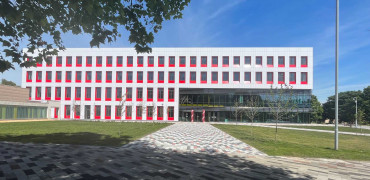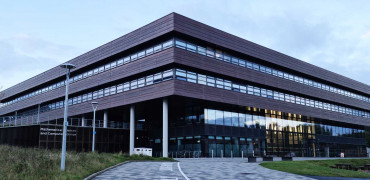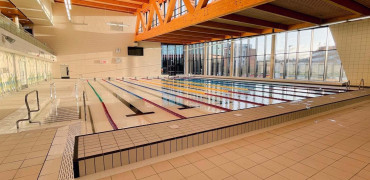It’s been quite a year for innovative projects as contributor Carole Titmuss has found out in the articles she’s written for The Hub.
Carole’s magazine, Refurb Projects looks at interesting building and refurbishment projects along with the new products that have become available across the world of construction, and we’ve been welcoming her contribution on our blogsite for over five years now.
Over the course of the last year, she’s focused on speedy chiller replacement, all-electric buildings and what it’s been like to live with hybrid air conditioning – amongst others.
Next-day delivery
Carole has seen something unique in each of the projects she’s focused on in 2022 and this followed on from the innovative project she ended 2021 with, which looked at the refurbishment of the Royal Berkshire Hospital in Reading, using chillers that are available ‘off-the-shelf’.
At the time, the world was still in lockdown so a like-for-like replacement for two aging chillers was going to take months to manufacturer and transport, before the removal and installation work could even start.
Three modern e-Series chillers were available the next day, meaning the replacement work could begin immediately, and this started a process to upgrade and replace all the chillers throughout the hospital’s four main blocks.
Once the Trust’s Board saw the improvements in efficiency and control, they quickly took the decision to invest in the new equipment.
4-star refurbishment
Next, Carol looked at the stylish refurbishment of Sheffield’s iconic Leopold hotel, which needed to replace its aging air conditioning.
The owners wanted a modern, energy efficient system that would deliver the comfort that guests expect while also helping reduce energy bills and lower carbon emissions.
The result is a modern solution that uses existing refrigerant pipework and will not only keep hotel rooms at the right temperature for guests, but also brings advanced control for hotel staff and helps minimise disruption during routine maintenance schedules.
Guests now benefit from full room control and the reassurance of modern air filtration.
Chillers help passivhaus pool
When Exeter City Council was planning a new leisure centre, they wanted something bold and trailblazing that needed to achieve Passivhaus standard – which slashes energy use while delivering high standards of comfort and health.
Carole Titmuss looks at how chiller technology is helping heat and cool the St Sidwell’s Point facility which has four pools, a gym for up to 150, several fitness studios and spa facilities.
Exeter City Council now has a stunning new asset, with an EPC rating of A. The leisure centre occupies a prominent city location and the overall design reflects Exeter’s desire for the new building to act as a landmark destination.
University cuts F-gases
Next up is an article that takes a look at how Hybrid air conditioning has helped deliver energy efficient student comfort for Durham University.
Students of Mathematical Sciences and Computer Science at the University have been benefiting from energy efficient cooling and heating, one year on from the installation of eight City Multi Hybrid Variable Refrigerant Flow (HVRF) outdoor air conditioning systems, and 52 indoor units.
The brand-new academic space was built to BREEAM excellent standards and designed with sustainability in mind – in line with the Durham’s ambitions to be one of the most sustainable universities in the UK.
All electric building
And ending the year, Carole looks at the first all-electric building for Salford University with an innovative, energy saving solution.
Carole says that the key element of how collaborative an approach it had been, that caught her eye.
The stunning four storey, 15,550 square metre Science, Environment and Engineering Building, which welcomed students working in physics, electronics and other sciences from the start of this academic year and benefits from energy-efficient heating and cooling systems.
The innovative design re-uses ‘waste’ heat to ‘heat’ the plant room to boost overall efficiency
Carole Titmuss is editor and publisher of Refurb Projects



